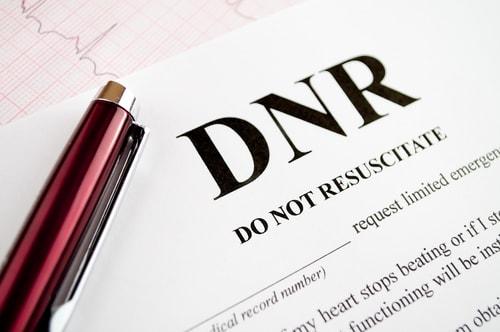Recent Blog Posts
5 Tips for Making Sure Your Advance Medical Directives Are Followed
 Advance medical directives are extremely important for everyone. Even if you are young and healthy, you never know when an emergency could arise, and you will need those documents to fall back on. For those who are older or anticipate that they may become incapacitated in the near future, these documents are critical. Living wills, medical powers of attorney, and Do Not Resuscitate orders are your voice when you can no longer speak for yourself. Everyone has their own wishes regarding what types of care they would or would not want to receive should they become incapacitated and seriously ill. Creating an incapacity plan to express these wishes is the first step. Making sure that your wishes are going to be carried out in practice is equally important.
Advance medical directives are extremely important for everyone. Even if you are young and healthy, you never know when an emergency could arise, and you will need those documents to fall back on. For those who are older or anticipate that they may become incapacitated in the near future, these documents are critical. Living wills, medical powers of attorney, and Do Not Resuscitate orders are your voice when you can no longer speak for yourself. Everyone has their own wishes regarding what types of care they would or would not want to receive should they become incapacitated and seriously ill. Creating an incapacity plan to express these wishes is the first step. Making sure that your wishes are going to be carried out in practice is equally important.
Steps You Can Take Toward Ensuring That Your Wishes Are Respected
You know what your wishes are better than anyone else. Unfortunately, not everyone may agree with your decisions. Family members sometimes make irrational decisions during times of emotional stress, especially when a loved one seems to be dying. Some measures you can make to keep your documents in control of the situation include:
What Happens If I Die Without an Estate Plan in Texas?
 Losing a close family member is always difficult, no matter what. Administrating a family member’s estate can be emotionally challenging even if they had a strong estate plan and the administration can be carried out smoothly. When there is no estate plan, the difficulty level can skyrocket for the surviving family members. During a period of grief, they will have the added stress of trying to sort out the estate without the decedent’s guidance.
Losing a close family member is always difficult, no matter what. Administrating a family member’s estate can be emotionally challenging even if they had a strong estate plan and the administration can be carried out smoothly. When there is no estate plan, the difficulty level can skyrocket for the surviving family members. During a period of grief, they will have the added stress of trying to sort out the estate without the decedent’s guidance.
In Texas, when a person passes away without an estate plan, their estate must go through a process called intestate probate. Essentially, in the absence of an estate plan, state law determines who should receive what. While the intestacy structure is designed to approximate what you probably would have wanted, there is no guarantee that this reflects your actual wishes. This is one of many reasons that estate planning is important for everyone.
How Does Intestate Probate Work in Bexar County?
5 Tips for Charitable Giving in a Texas Estate Plan
 Using a portion of your estate to support a cause you believe in can be an excellent way to build a lasting legacy. When you leave money or property to a charity in an estate plan, you can keep making the world a better place long after you are gone. Your surviving loved ones will have the benefit of seeing the good you are still doing every day. The benefits of posthumous charitable giving are numerous. You will have options for how you go about designating a portion of your estate for charity. It is a good idea to talk over your options with a qualified estate planning lawyer who can help you make the most of any charitable giving you use your estate plan to accomplish.
Using a portion of your estate to support a cause you believe in can be an excellent way to build a lasting legacy. When you leave money or property to a charity in an estate plan, you can keep making the world a better place long after you are gone. Your surviving loved ones will have the benefit of seeing the good you are still doing every day. The benefits of posthumous charitable giving are numerous. You will have options for how you go about designating a portion of your estate for charity. It is a good idea to talk over your options with a qualified estate planning lawyer who can help you make the most of any charitable giving you use your estate plan to accomplish.
What You Should Know About Charitable Giving Through Estate Planning
Setting up your estate plan so that some funds go to a good cause does not have to be difficult or complicated, although you should have an attorney assist you. If you are considering using your estate to help out a charitable organization, some things to be aware of include:
20 Years Later, the Terri Schiavo Case Still Exemplifies the Need for a Living Will
 Many people think that the term “estate planning” is synonymous with writing a will. However, a will is only one component of the estate planning process. Estate planning is not only planning for the distribution of your assets upon your death, but also planning for your possible incapacitation. Many people are terminally ill and unable to make decisions for themselves long before they pass away. Planning for the possibility of incapacitation by illness or injury is very important. Nothing better exemplifies the need for incapacitation planning than the Terri Schiavo case.
Many people think that the term “estate planning” is synonymous with writing a will. However, a will is only one component of the estate planning process. Estate planning is not only planning for the distribution of your assets upon your death, but also planning for your possible incapacitation. Many people are terminally ill and unable to make decisions for themselves long before they pass away. Planning for the possibility of incapacitation by illness or injury is very important. Nothing better exemplifies the need for incapacitation planning than the Terri Schiavo case.
Legal and Familial Turmoil Caused by Uncertainty
When she was just 26 years old, Terri Schiavo went into cardiac arrest. She suffered brain damage from lack of oxygen that put her in a vegetative state. Doctors had little hope of her ever regaining consciousness. Terri’s husband did not believe that his wife would want to live in that condition. In 1998, he sought to have her breathing tube removed so she could die naturally. However, Terri’s parents strongly disagreed. They wanted their daughter to be kept alive by any means necessary – even if she could never again interact with the world or communicate with loved ones.
6 Reasons to Choose a Revocable Living Trust
 Revocable living trusts can offer a number of benefits over standalone wills. The idea of an irrevocable trust can be frightening for some, as it is not easily altered once it exists. Revocable trusts are more flexible and can accomplish quite a few different goals. These trusts can generally be administered rather smoothly and with little or no court oversight. Many people prefer to use this type of flexible trust as their main testamentary document. Before you choose a type of trust, make sure that you speak with an attorney and discuss the goals you want to accomplish and your financial situation. A qualified estate planning lawyer can help you decide whether a revocable living trust is the right estate planning tool for you.
Revocable living trusts can offer a number of benefits over standalone wills. The idea of an irrevocable trust can be frightening for some, as it is not easily altered once it exists. Revocable trusts are more flexible and can accomplish quite a few different goals. These trusts can generally be administered rather smoothly and with little or no court oversight. Many people prefer to use this type of flexible trust as their main testamentary document. Before you choose a type of trust, make sure that you speak with an attorney and discuss the goals you want to accomplish and your financial situation. A qualified estate planning lawyer can help you decide whether a revocable living trust is the right estate planning tool for you.
What Are the Benefits of a Revocable Living Trust?
Some advantages of using this type of trust include:
- Avoiding probate - Probate can be a long, complicated process. Your beneficiaries may have a difficult time, especially if there are any hiccups during the probate process. More complex probate situations need to be handled by an attorney, unless your personal representative is rather experienced.
How Does a Special Needs Trust Work in Texas?
 If there is anyone with special needs you would like to make one of your estate beneficiaries, a special needs trust is likely the best way to go about it. Also called a “supplemental needs trust,” these trusts allow you to leave money to a disabled adult without jeopardizing any of their public benefits. A trustee will be able to make distributions to the beneficiary to pay for needs or wants that Medicare or Social Security would not cover. However, because the beneficiary cannot withdraw funds at their own discretion, any funds in the trust are not counted as their income for purposes of need-based assistance programs. If you are trying to leave estate property to someone with special needs, your lawyer will most likely suggest using this type of trust.
If there is anyone with special needs you would like to make one of your estate beneficiaries, a special needs trust is likely the best way to go about it. Also called a “supplemental needs trust,” these trusts allow you to leave money to a disabled adult without jeopardizing any of their public benefits. A trustee will be able to make distributions to the beneficiary to pay for needs or wants that Medicare or Social Security would not cover. However, because the beneficiary cannot withdraw funds at their own discretion, any funds in the trust are not counted as their income for purposes of need-based assistance programs. If you are trying to leave estate property to someone with special needs, your lawyer will most likely suggest using this type of trust.
Why Do I Need to Use This Type of Trust to Provide for an Adult With Special Needs?
If you use a more traditional type of trust where regular distributions are made or they can withdraw funds at will they will need to report that money as income or a personal resource when applying for important government benefits. The same is true if you use a will and leave them a lump sum. This could lead to your loved one losing access to benefits that they rely on, forcing them to use the money you leave them to pay for things that an assistance program would have covered, such as medical care and housing.
When Should a Beneficiary Hire a Lawyer?
 Becoming an estate beneficiary can bring a strange mix of emotions. On one hand, if you are inheriting something, it means that a loved one who cared about you has died, so you are grieving. On the other hand, you may be gaining a substantial amount of money, treasured family belongings, or even real estate. Depending on the type of testamentary plan your loved one used and how the administration of the estate is being handled, you might also be confused or upset. In many cases, the named estate administrator does a fine job and you will not need an attorney of your own. In other cases, something goes awry or the process is too complex for it to be handled without an attorney’s help.
Becoming an estate beneficiary can bring a strange mix of emotions. On one hand, if you are inheriting something, it means that a loved one who cared about you has died, so you are grieving. On the other hand, you may be gaining a substantial amount of money, treasured family belongings, or even real estate. Depending on the type of testamentary plan your loved one used and how the administration of the estate is being handled, you might also be confused or upset. In many cases, the named estate administrator does a fine job and you will not need an attorney of your own. In other cases, something goes awry or the process is too complex for it to be handled without an attorney’s help.
Do I Need My Own Attorney to Help Me Claim My Inheritance?
When everything goes smoothly, you might not need a lawyer during the estate administration process. However, if you encounter any of these situations while attempting to claim your inheritance, it may be in your best interest to work with an attorney:
5 Types of Trusts That You Might Need in Your Texas Estate Plan
 Trusts are increasingly common vehicles for distributing estate assets. Contrary to popular belief, you do not need to be wealthy for a trust to work well in your estate plan. In fact, trusts can be great for smaller estates as they allow your surviving loved ones to skip probate - which can become costly.
Trusts are increasingly common vehicles for distributing estate assets. Contrary to popular belief, you do not need to be wealthy for a trust to work well in your estate plan. In fact, trusts can be great for smaller estates as they allow your surviving loved ones to skip probate - which can become costly.
Understanding the different types of trusts you can use may help you see how a trust might fit into your estate plan. It is important to work with an experienced estate planning lawyer, who can assess your situation and guide the process to meet your goals.
What Types of Trusts Could I Use in My Estate Plan?
You may be familiar with the two main types of trusts - revocable and irrevocable. A revocable trust can be changed after it is established while an irrevocable trust generally cannot, although there are exceptions. Some types of trusts available in Texas that you may not be familiar with include:
Top 3 Reasons for Estate Litigation in Wilson County
 If you have taken the time to create an estate plan, you probably want it to be enforceable as written. The last thing you want is your beneficiaries or relatives filing lawsuits related to your estate plan. A strong estate plan can help keep the peace among a family after the testator or grantor is gone. However, when an estate plan contains certain flaws, it can have the opposite of the intended effect. Estate litigation can lead to a lot of hurt feelings on both sides of the lawsuit and sometimes causes a permanent rift among a family.
If you have taken the time to create an estate plan, you probably want it to be enforceable as written. The last thing you want is your beneficiaries or relatives filing lawsuits related to your estate plan. A strong estate plan can help keep the peace among a family after the testator or grantor is gone. However, when an estate plan contains certain flaws, it can have the opposite of the intended effect. Estate litigation can lead to a lot of hurt feelings on both sides of the lawsuit and sometimes causes a permanent rift among a family.
Some of these mistakes are relatively easy to make, especially if you attempt to do your estate planning on your own. Your best bet is to work with an experienced estate planning attorney who can help you avoid these potential pitfalls and more.
What Mistakes in an Estate Plan Can Open the Door for Estate Litigation?
If I Am a Fiduciary, Do I Need a Lawyer?
 Executors, estate administrators, trustees, and some powers of attorney are all considered fiduciaries in the realm of estate planning. Being a fiduciary is an enormous responsibility. Fiduciaries are required to act strictly in the interest of the individual, or the beneficiaries of the trust or estate they represent without considering their own personal interests. They are required to avoid any potential conflicts of interest, and are not to exploit their position for personal gain in any way. Unless you are a professional fiduciary, you can easily find yourself in over your head. An attorney who is experienced at aiding fiduciaries can help you avoid potential problems, or maybe help resolve existing problems.
Executors, estate administrators, trustees, and some powers of attorney are all considered fiduciaries in the realm of estate planning. Being a fiduciary is an enormous responsibility. Fiduciaries are required to act strictly in the interest of the individual, or the beneficiaries of the trust or estate they represent without considering their own personal interests. They are required to avoid any potential conflicts of interest, and are not to exploit their position for personal gain in any way. Unless you are a professional fiduciary, you can easily find yourself in over your head. An attorney who is experienced at aiding fiduciaries can help you avoid potential problems, or maybe help resolve existing problems.
When Should a Fiduciary Consider Finding an Attorney?
If you are simply serving as personal representative for a close relative’s small estate - and the rest of the family is getting along - you may be able to complete your duties on your own, without a lawyer’s help. For more complex or high-conflict situations, it may be in your best interest to seek legal assistance. You may want to get in touch with an attorney in these situations:

 8531 N. New Braunfels Ave, Suite 100, San Antonio, TX 78217
8531 N. New Braunfels Ave, Suite 100, San Antonio, TX 78217 210-535-0870
210-535-0870




